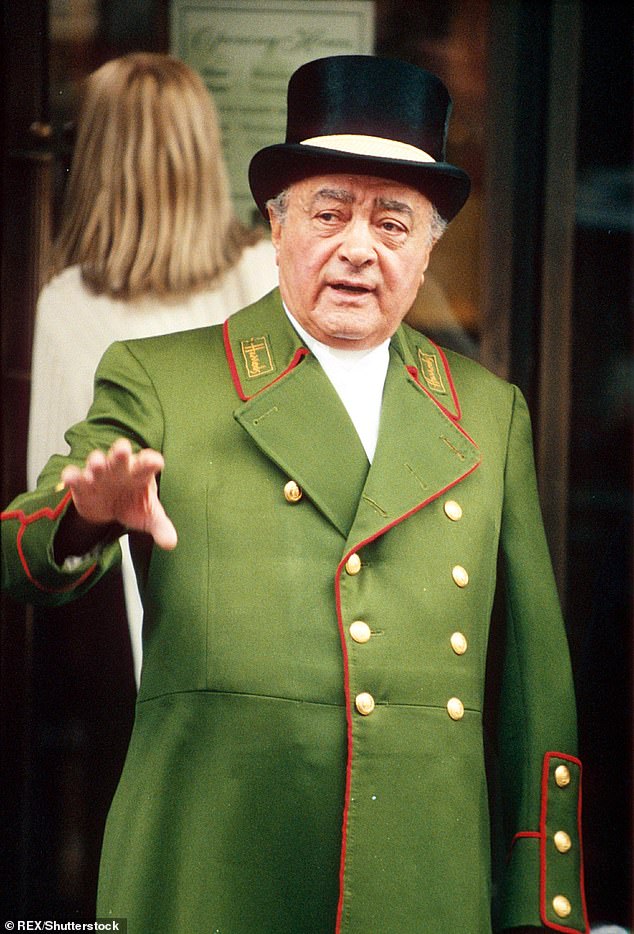Police revealed today that they are investigating 40 new allegations against Mohamed Al Fayed and others since the broadcast of the explosive BBC documentary.
The Met said it had been contacted by numerous people since the investigation into the former Harrods and Fulham FC owner was published last month.
The 40 new allegations relate to 40 alleged victims and are in addition to allegations that police were aware of before the investigation and the BBC documentary, Scotland Yard said.
Prior to the recent media coverage, 21 allegations were made against the late billionaire, resulting in crimes being recorded involving 21 different women between 2005 and 2023.
The offenses are alleged to have taken place between 1979 and 2013. Four of the reports were allegations of rape, 16 of sexual assault and one related to trafficking, the Met said.
Dozens of sexual assault allegations have been leveled against billionaire Mohamed Al Fayed (pictured), dating back almost half a century
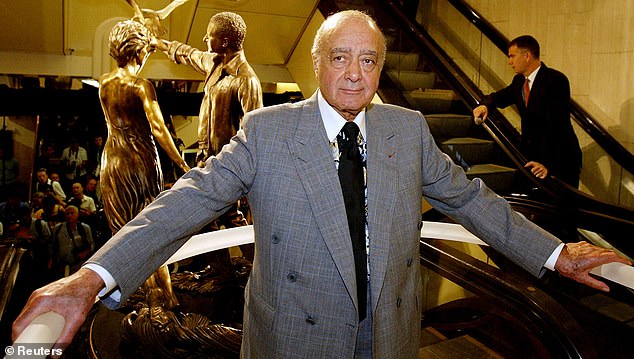
Al Fayed in 2005 at the unveiling of a monument to his son Dodi and Diana, Princess of Wales.
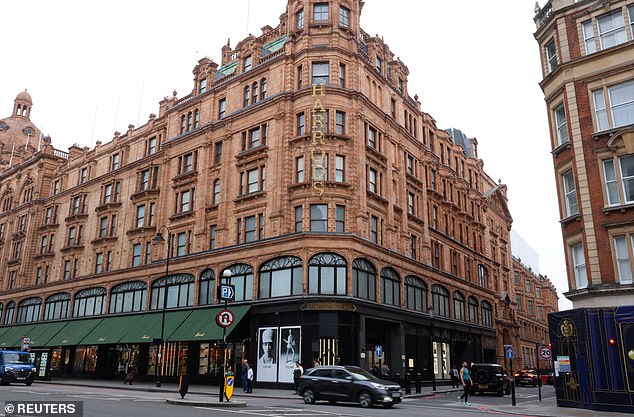
Many of the businessman’s alleged victims worked for Harrods (pictured)
Scotland Yard approached the Crown Prosecution Service on five occasions between 2005 and 2023, police said, but no further action was taken against Al Fayed.
The force said that while it would not be possible to bring criminal proceedings against Al Fayed, who died last year aged 94, it would “continue to explore whether other people could be pursued for any criminal offences”.
Met Commander Stephen Clayman said: “Since the broadcast of the documentary and our recent appeal, detectives have received numerous pieces of information, predominantly relating to the activities of Mohamed Al Fayed, but some relating to the actions of others.” .
‘This has led us to record 40 new allegations, relating to 40 victim-survivors and covering crimes including sexual assault and rape over a period between 1979 and 2013. These are in addition to the allegations we were aware of before broadcast.
‘I recognize the courage it will have taken for people to take that step and tell us about their experiences and I want to reassure anyone who has not yet got in touch that we have specially trained detectives who will listen and support you.
‘All of these reports will need to be recorded and formally assessed to see if there are allegations of criminality that can be pursued. This will take time, but we will ensure that those who contact us are kept informed of progress.
‘We are also continuing to work to contact solicitors representing people who have come directly to them, to ensure they are aware of our request to speak to the police so that any offenses can be recorded and appropriate support provided.
‘While the majority of the information we have received relates to Al Fayed’s ownership of Harrods, we are contacting representatives of other organizations linked to Al Fayed to ensure that anyone affected is identified and given the opportunity to speak to we.
A spate of rape and assault allegations began last month with a BBC documentary that said at least 20 women who had worked at Harrods in London said they had been raped or sexually abused by the flamboyant Egyptian tycoon who bought the iconic grands warehouses in 1985.
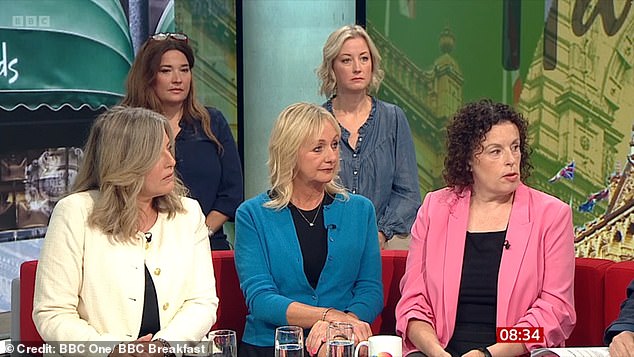
Pictured above are five former Harrods employees who spoke out about Al Fayed’s alleged abuse. Pictured below, from left to right, are Jen, Lindsay and Catherine. Above from left to right are Nicole and Gemma.
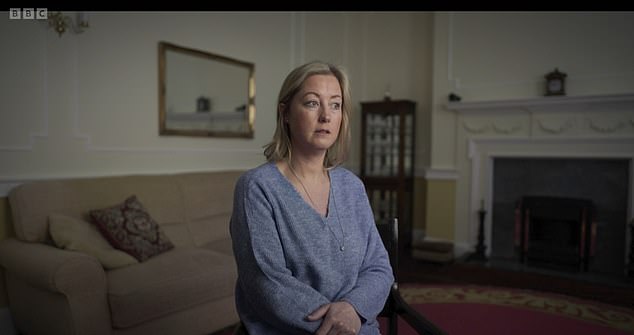
Gemma, who worked for Fayed between 2007 and 2009, is among those accusing him and appears in a BBC documentary.
Since then, 65 other women have approached the broadcaster, making similar claims dating back to 1977, before it bought Harrods.
It suggests that Al Fayed’s reign of sexual terror, which was first reported in the 1990s but repeatedly failed to be prosecuted by police, may have been even longer and broader than already feared.
Although he died five years ago at the age of 83, lawyers are now acting on behalf of many victims, far above those who have spoken to the BBC, seeking damages and some form of justice.
Harrods told the BBC yesterday: “Since the documentary aired, there are so far more than 200 people who are in Harrods’ process to resolve complaints directly with the company.”
Of the 65 new “victims” who approached the BBC over the past three weeks, 37 worked for Harrods.
Another 28, however, did not, saying he launched vile sexual attacks on them under the pretext of recruiting them to join his domestic staff, simply in the course of a vague “interview”, or even against a member of BBC staff. .
The first accusation, dated 1977, comes from a woman named Sheenagh, 72, who waived her anonymity to tell reporters that the documentary led her to ask herself: “Was I the beginning?”
She was in Dubai at the time working in a bank, while her husband worked in construction. The emirate was then in its modern infancy, but Al Fayed was there too, making his fortune by winning lucrative contracts, including the construction of the port.
According to Sheenagh, the tycoon, then in his early 40s, was among her clients at the bank and, after engaging her repeatedly, had invited her to a meeting “about a job” at his nearby office.
As she sat across from him at a desk, she claimed, he walked up behind her and continued: ‘When I turned, hands went over my shoulders. He had his hands everywhere.
Sheenagh said she fled towards the door to escape his sexual assault and only managed to do so after slapping him.
She claimed he told her, “You might regret that” and continued to harass her.
Sheenagh claimed that there were 20 incidents of harassment, at work, on the street, at her social club and in a supermarket, in which he repeated his sinister threat and even groped her again on occasion.
Only when she found out he had left Dubai did she breathe easy, but she waited until 2015, when her husband was practically on his deathbed, to finally tell him what had happened, saying: “It was the only secret I had kept from him.” ‘.
He added that he regretted not having informed the authorities earlier of Al Fayed’s death.

The Met says ‘the majority’ of reports it has received match Al Fayed’s ownership of Harrods
Another alleged victim from outside Harrods, who was given the pseudonym Margot by the BBC, said she saw an advert Al Fayed placed in The Lady magazine in 1985 and applied, aged 19, for a job as a nanny and governess. A photo was requested.
But she was surprised that her interview ended with the question “if I had a boyfriend or if I ever had a boyfriend.” The interviewer “seemed relieved” when she said she had never done it.
Margot said she then got the job – at the insistence of her mother attempting a month-long trial – and was driven in a chauffeured limousine to Al Fayed’s mansion, Barrow Green Court in Oxted.
Once inside, they would call her by internal phone from her small dark bedroom, only to almost always discover that she was alone with Al Fayed, in the indoor pool, in the gardens or in the studio, and then she would be sexually assaulted.
She said he also eventually raped her in her bed at night, before she demanded to leave, despite being offered a house, and after being “held against my will for several days,” she finally left, with a warning to keep quiet.
“I didn’t need a babysitter,” Margot said. “They recruited me as a potential sexual partner or toy.”
Other women told the BBC they suffered similar abuse after being spuriously hired as nannies, cooks or maids. A florist and even a BBC makeup artist who was preparing Al Fayed for an interview have also made accusations.


